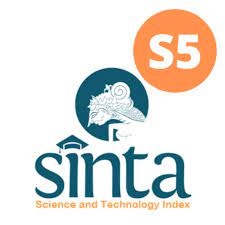Pembelajaran Kolaboratif Sekolah Dasar Menggunakan Model Vygotski
DOI:
https://doi.org/10.31851/wahanadidaktika.v19i1.4978Keywords:
pembelajaran kolaboratif, model VygotskyAbstract
Aspek sosial menempatkan manusia yang hadir dan berinteraksi satu dengan lainnya. Dalam konteks pendidikan, ruang kelas menjadi sumber daya dimana model pembelajaran sosial diterapkan dengan melibatkan siswa untuk berinteraksi mengembangkan ketrampilan2 sosial mereka sekaligus mengelola kerjasama kolaboratif. Prosedur analisa naratif digunakan Peneliti untuk mendeskripsikan penerapan model pembelajaran sosial Vygotsky (Vygotsky, 1962; Gindis, 1999; Burkhalter, 1995; Totten, Sills, Digby & Russ, 1991) dengan menggunakan lima domain yang memiliki relevansi terhadap pembelajaran kolaboratif sekolah dasar (Damon & Phelps, 1989; Dillenbourg, 1999). Lima domain tersebut masing2 adalah intervensi (intervention), pertukaran (exchange), ide (idea), peran (role), dan partisipasi (participation). Penelitian konseptual ini diharapkan dapat memberi sumbangan dalam literatur pembelajaran kolaboratif sekolah dasar.
References
Blair, E. (2015) A Reflexive Exploration of Two Qualitative Data Coding Techniques. Journal of Methods and Measurement in the Social Sciences Vol. 6, No. 1, 14-29, 2015
Burkhalter, N. (1995) A Vygotsky-based curriculum for teaching persuasive writing in the elementary grades. Language Arts Vol. 72 No. 3 pp. 192-199. National Council of Teachers of English
Cohen, E.G. (1994) Restructuring the classroom: conditions for productive small groups. Review of Educational Research, 64, 1-35
Damon, W. & Phelps, E. (1989) Critical distinction among three approaches to peer education. International Journal of Educational Research, 58, 9-19
Dillenbourg, P. (1999) What do you mean by 'collaborative learning'? In P. Dillenbourg (Ed.), Collaborative learning: cognitive and computational approaches (pp. 1-19). Oxford, UK: Elsevier
Gindis, B. (1999) Vygotsky's Vision. Reshaping the Practice of Special Education for the 21st Century. Remedial and Special Education Vol. 20 No. 6 November/December pp. 333-340
Johnson , R. T., & Johnson, D. W. (1986). Action research: Cooperative learning in the science classroom. Science and Children , 24, 31-32.
Summers, J.J. (2006) Effects of collaborative learning in math on sixth graders' individual goal orientations from a socioconstructivist perspective. The Elementary School Journal, 106, 273-290
Totten , S., Sills, T., Digby, A., & Russ, P. (1991). Cooperative learning: A guide to research . New York: Garland.
Vygotsky, L.S. (1962) Thought and Language, edited and translated by Eugenia Hanfman and Gertrude Vakar. Cambridge, MA: the M I T Press







